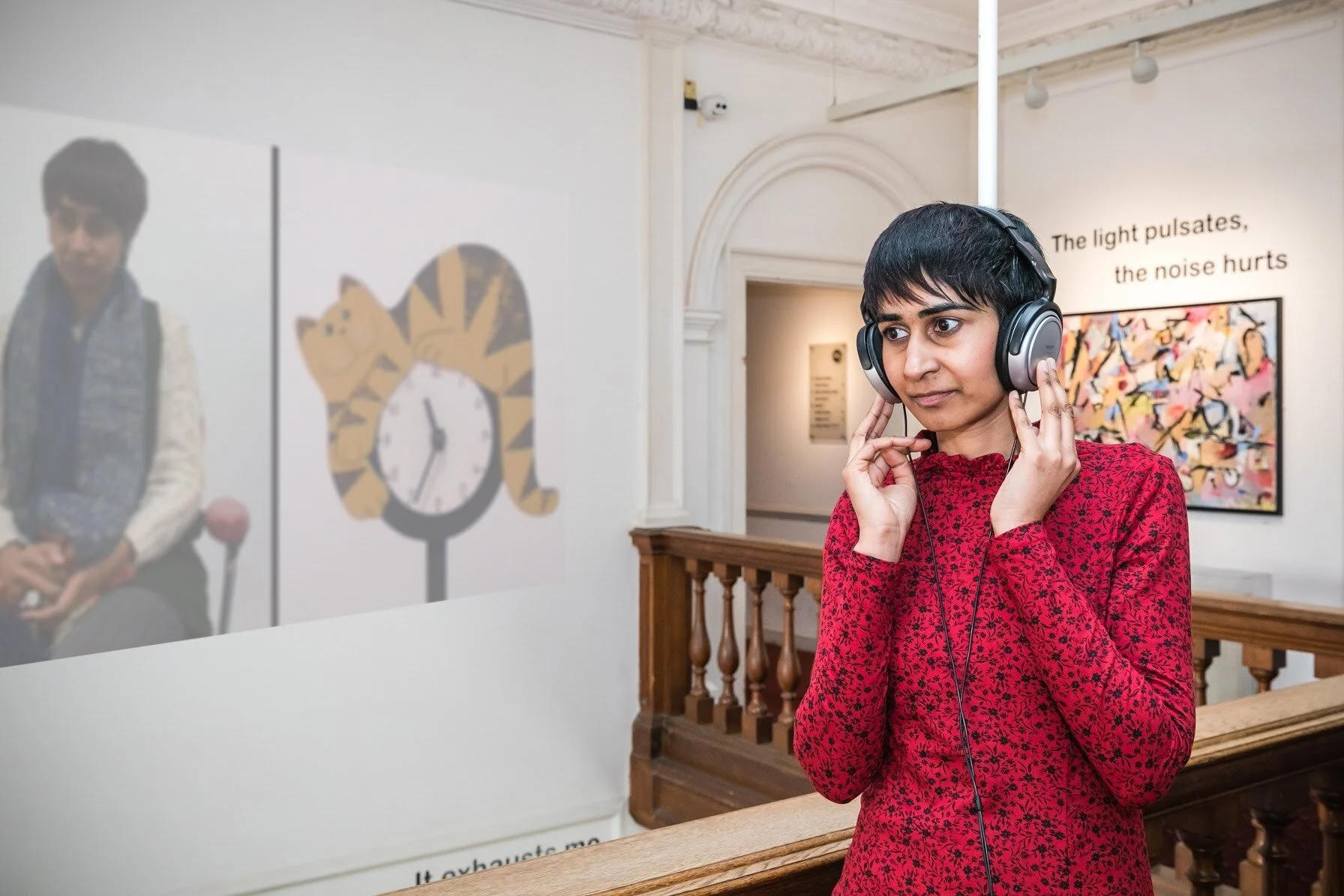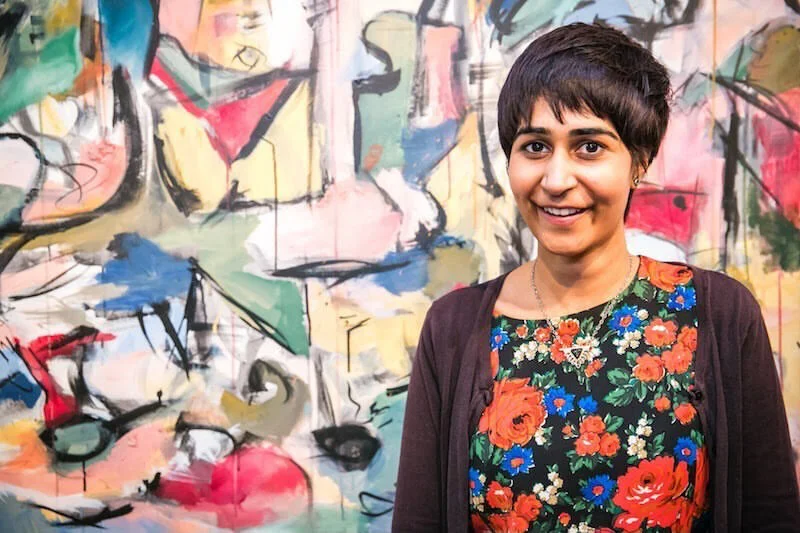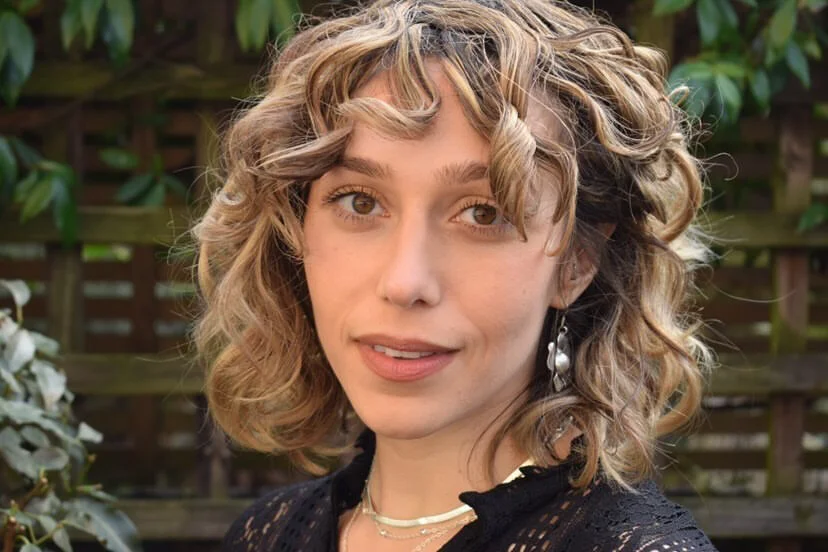02.04.21// “I’m not a typical, white nerdy guy”: challenging stereotypes on World Autism Awareness Day



Credit: Catherine Hadler - http://www.creativecommerciaphotography.co.uk
By Sally Patterson
2 April 2021
Today is the 14th annual World Autism Awareness Day.
It’s been almost 80 years since Austrian-American psychiatrist and physician Leo Kanner first diagnosed someone with autism, yet prejudices and misconceptions about ASD (Autism Spectrum Disorder) continue to prevail.
Autistic artist and advocate Mahlia Amatina is working hard to challenge the narrative.
She’s determined to counter age-old notions about autism.
“It’s still characterised in the media as being male, like if you’re female you’re not going to be autistic,” she explained.
“This nerdy, geeky stereotype, someone who has loads of collections, who isn’t able to make eye contact or make friends, who can’t be in a relationship.
“These are the stereotypes that come to mind, which are just wrong.
“I’m not a typical, white nerdy guy, so I’m hoping to raise awareness.”
Credit: Mahlia Amatina
In fact, Mahlia, a woman of mixed Indian and Kenyan heritage, strays so far from the stereotype that she wasn’t diagnosed until her 30s.
This isn’t uncommon, and whilst research suggests girls with mild symptoms are diagnosed two years later than boys, many women aren’t being diagnosed until adulthood.
Clinical psychologist Dr Trevor Powell, who diagnosed Mahlia almost six years ago, explained there had been a major shift over the past decade about women on the autism spectrum.
Autistic girls may present differently to boys, tending to have better social skills and masking their symptoms more convincingly and Clinical Director at the National Autistic Society Dr Sarah Lister Brook explained professionals still don’t always understand the different ways autism can manifest in women and girls, so many can still go through their lives without a diagnosis.
She said: "A diagnosis can help explain that feeling of difference, which in itself can take away some of that stress, as well as allowing people to find the right support.”
Dr Powell reckons around 25% of women he diagnoses only recognise the symptoms in themselves after one of their children gets diagnosed with autism.
As such, many autistic women have previously been misdiagnosed, such as with Borderline Personality Disorder or depression, and growing up may have struggled to fit in.
“There was always that feeling of difference, but not really having the skills to understand it,” Mahlia explained.
“Not having close friendships, but being able to get on with a large group of people.”
“It was just a general feeling of difference and not fitting in with the ease that everybody else did, it just seemed very easy to everyone else.”
Credit: Mahlia Amatina
Now that she’s got her diagnosis and has had the time to understand and accept it, Mahlia’s realised her differences can be advantageous, and her artwork offers an outlet to celebrate neurodiversity
Her exhibitions offer visitors a ‘multi-sensory experience of colour, line, shape’, and her early work drew out of testimonies from a global community of autistic people.
But the abstract artist thinks the positives of neurodiversity are still being missed, particularly by employers.
Just 22% of autistic adults in the UK are in paid employment, according to research by the Office for Statistics research, and most of them are in part-time work.
She said: “Autistic people are great in the workforce- we’re loyal, and I’ll always give my utmost to my employer.
“There’s so many benefits to autistic employees- hyperconcentration is a real asset, as is attention to detail, accuracy, creativity and also having a different perspective that diversity brings to the workforce.”
Mahlia’s advocating for employers to do more to support autistic workers, and stresses the nature of this support will need to vary from person to person.
Common issues tend to revolve around sensory overload, namely when the body’s senses (touch, sight, hearing, smell, and taste) are overstimulated, for example by bright, flashing lights or overlapping sounds.
Credit: Mahlia Amatina
Mahlia said: “It probably explains why the full-time working figure is so low as well- people can work part time but then they need the rest of time to recuperate and recover.
“We need better understanding, both at a practitioner and at a public awareness level as well”.
She hopes to see recognition of autism and its diverse manifestations in different people at both a practitioner and public awareness level.
Getting a diagnosis changed Mahlia’s life dramatically in 2015 and she stressed the importance of seeking help and getting a diagnosis.
“Without that your life’s going to be pretty miserable really, because you’re always going to be finding things difficult and not knowing why, and that’s just really sad and unnecessary,” she added.
To find out more about World Autism Awareness Day visit autismspeaks
Sally is a London-based journalist, and recently finished her NCTJ diploma, the nationally accredited journalism qualification. She has a masters in Gender Studies from the University of Cambridge and in 2018/19 she was the Equality, Liberation and Access Officer at Bristol Students’ Union. During that time she was elected onto the NEC for the National Union of Students and Union of Jewish Students for two years.
Mahlia Amatina is a visionary artist who’s work explores neurodiversity. She has been awarded Arts Council England (ACE) funding twice, including the ‘Developing your Creative Practise’ fund, and has been featured as one of the Top 50 Influential Neurodiverse Women of 2019 by Women Beyond the Box.



